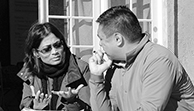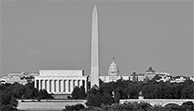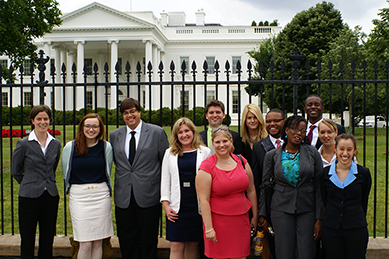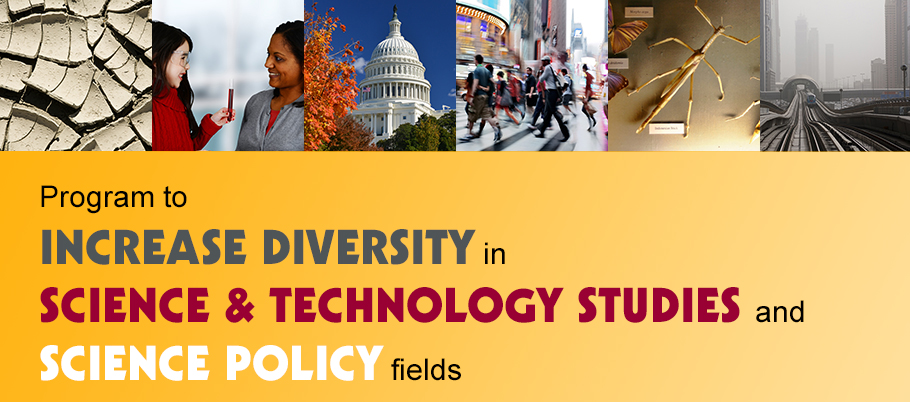|



How do I apply?
To apply, download and fill out an application.
Questions?


|
Policy, Science, Technology & Society (POSTS) Scholars Program
mentorship & guidance
Because the paths to STS & science policy careers are sometimes ambiguous, you will be teamed up with a faculty mentor established in one of these fields to help you define and navigate your way forward. A faculty mentor will provide regular support and guidance throughout the program and potentially beyond.
2 summer workshops in washington, dc
Participating students from the 11 universities will meet up twice in Washington, DC, for summer workshops and experience firsthand the complexity of the science policy and funding process and the key players in it. You’ll also have the opportunity to network with your peers who’re participating in the program across the country.
2015 Dates with either be June 7 - 13 or June 14 - 20.
personalized research experience & course of study
Throughout the program faculty mentors will assist you in choosing the best classes based on your particular STS or science policy interests and career aspirations. With the assistance of your mentor, you’ll also undertake a personalized research project.
Participation in the program and mentorship are provided free of charge. Additionally, a stipend will be provided to cover travel, room, & board for the DC workshops.

make your mark where science&society intersect
|
participating universities & faculty
Arizona State University
Jenny Brian
Barrett, The Honors College
DePaul University
Mark Robinson
School for New Learning
Drexel University
Gwen Ottinger
Center for Science, Technology & Society
Georgia Institute of Technology
Richard Barke
School of Public Policy
Michigan State University
Kyle Powys Whyte
Department of Philosophy
North Carolina State University
Jason Delborne
Genetic Engineering and Society Program
Portland State University
Thad Miller
Urban Studies & Planning
University of California, Santa Barbara
Barbara Herr Harthorn
NSEC: Center for Nanotechnology in Society
University of Maryland
David Tomblin
Science, Technology & Society Program
University of New Mexico
Luis Campos
History Department
University of Virginia
Rider Foley
Department of Engineering and Society
University of Wisconsin
Dietram A. Scheufele
Department of Life Sciences Communication
|









